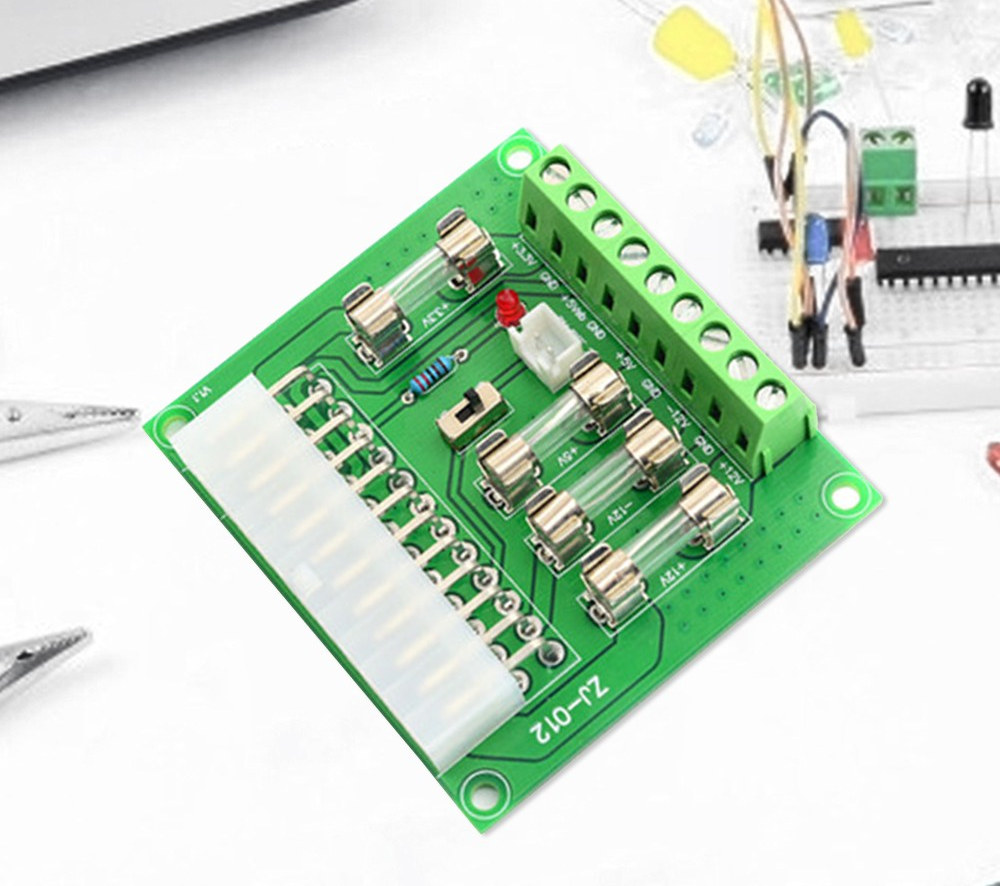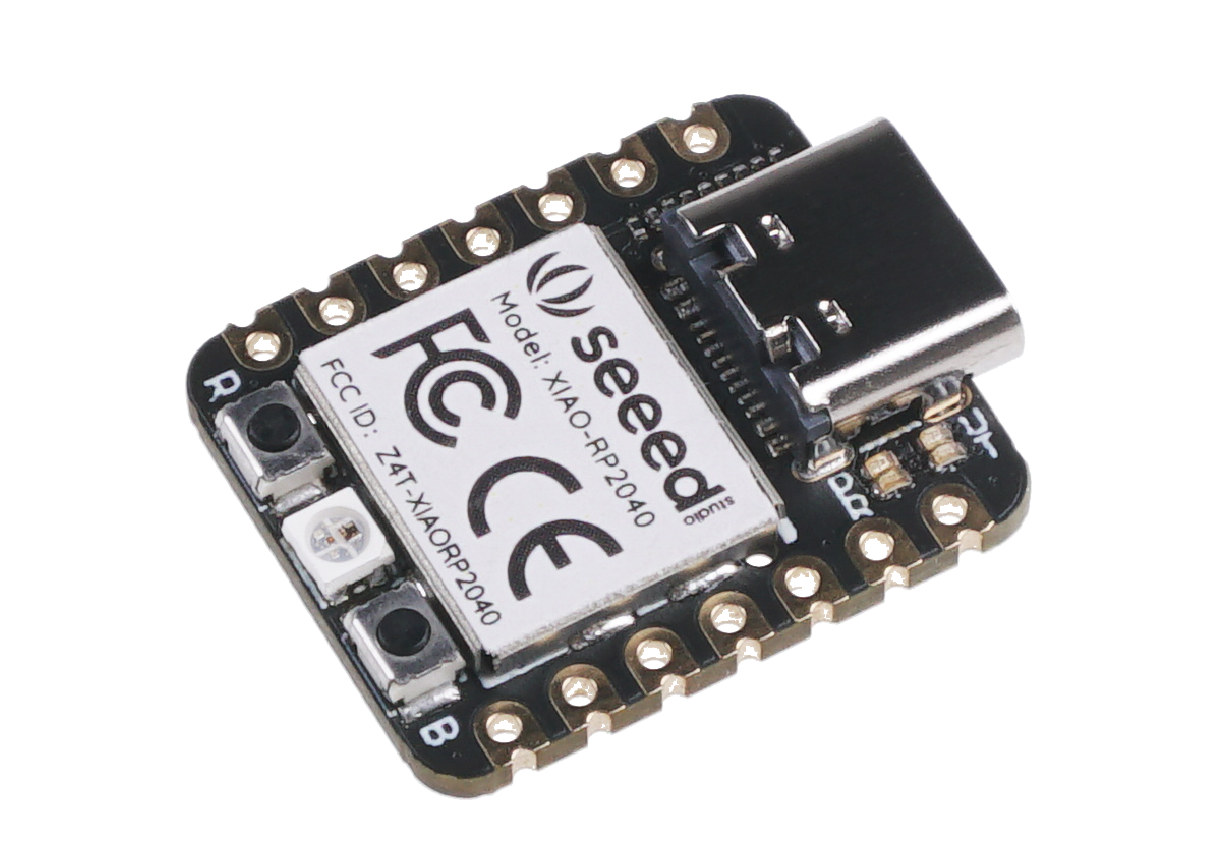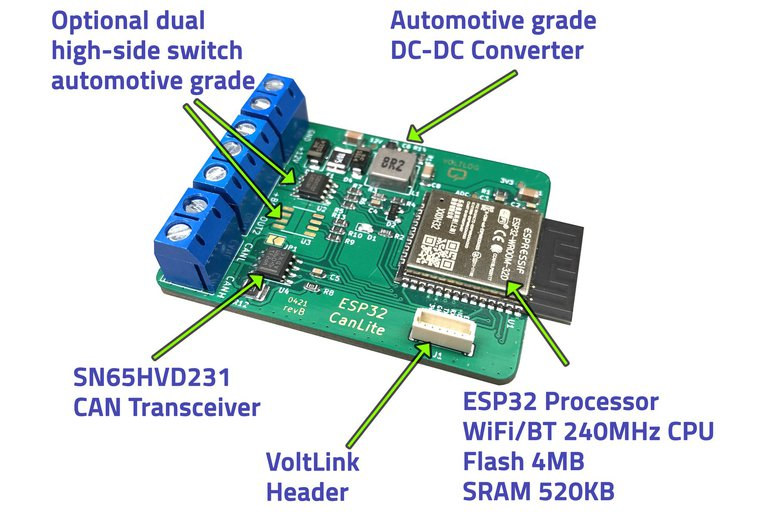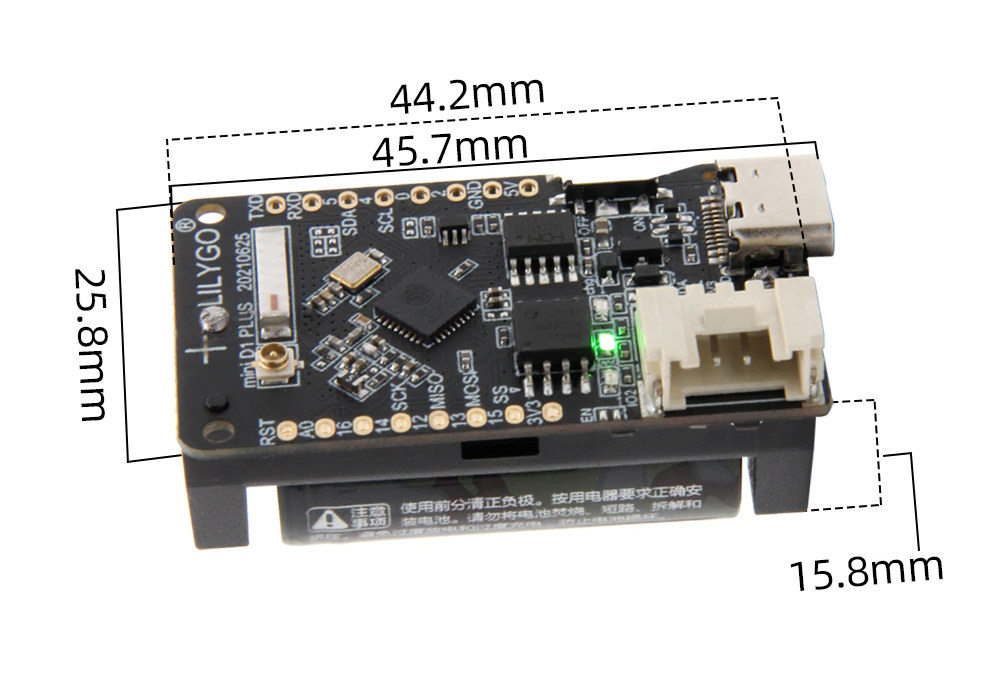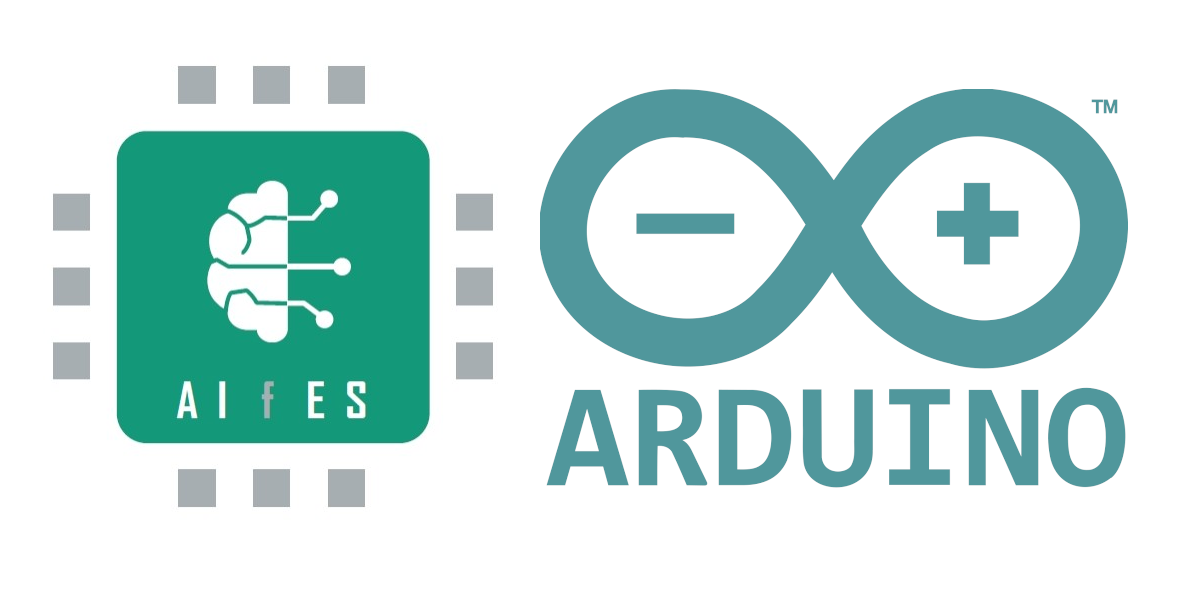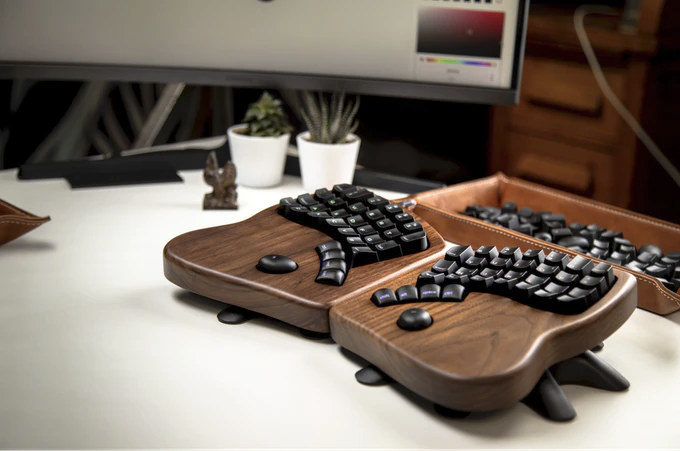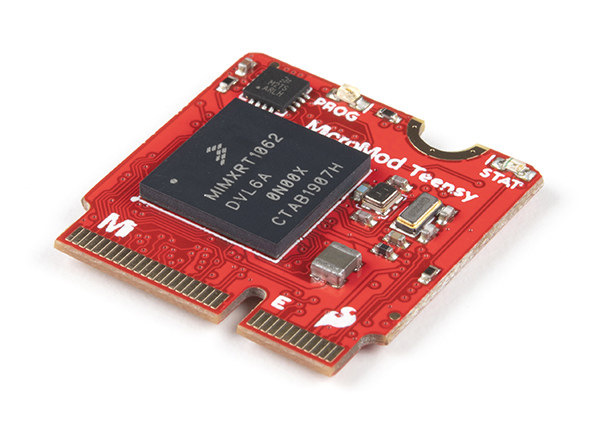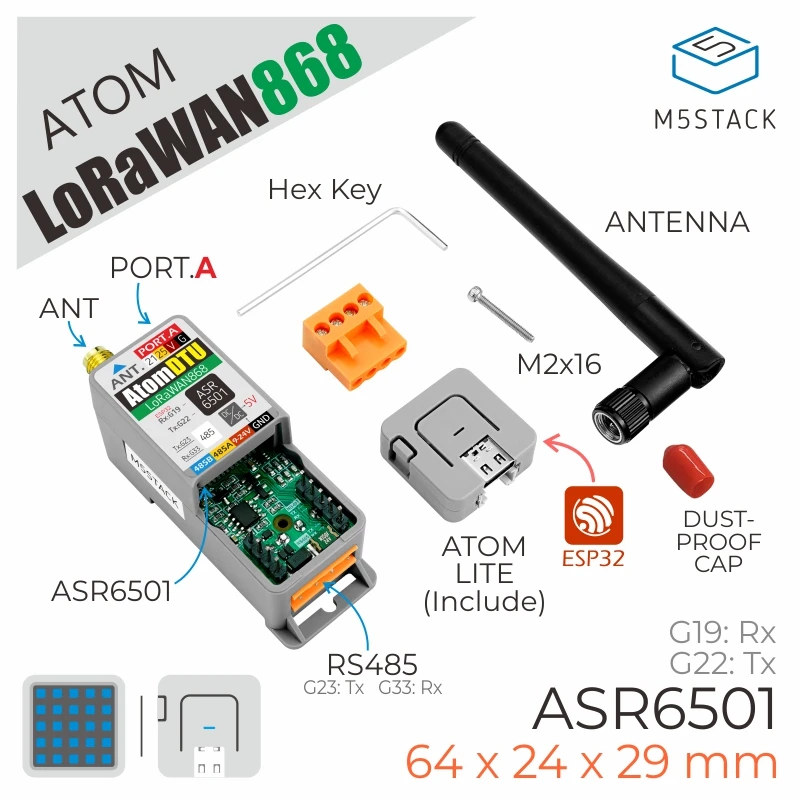Many people have ATX power supplies from older desktop PCs that they may want to reuse with Arduino boards, Raspberry Pi, or other single board computers. It’s indeed possible to do so by trimming some cables and making a circuit to protect the board from over-voltage or over-current. But ZJ-012 adapter board offers a simpler solution with a 24-pin header for the ATX power supply, terminal blocks for connection to the target board, some fuses for protection, and a header to connect an on/off button. JZ-012 (also known as JZ-024) ATX power adapter board’s key features and specifications: Power Input – 20-pin or 24-pin computer ATX power supply Power output – 9-pin terminal block with +3.3V, +5V, -12V, +12V, +5V, GND with fuses for each power outputs On/Off control – Toggle switch or header for external button/switch (shorted for power on) Misc – Power indicator (red LED) Dimensions – 70 […]
Tiny Seeeduino XIAO board gets Raspberry Pi RP2040 MCU
Seeeduino XIAO is a tiny Arduino Zero compatible board with battery support that was launched last year with Microchip SAMD21G18 ARM Cortex-M0+ microcontroller at up to 48MHz. Seeed Studio has now launched the XIAO RP2040 board with the same form factor but upgrading to a more powerful Raspberry Pi RP2040 dual-core Cortex-M0+ microcontroller clocked at up to 133 MHz. XIAO RP2040 specifications: MCU – Raspberry Pi RP2040 dual-core Cortex M0+ up to 133 MHz, or even 252 MHz (48MHz default) with 264 kB SRAM Storage – 2MB SPI flash USB – 1x USB type C port for power and programming Expansion I/Os 2x 7-pin headers with 11x 4x analog inputs, 11x digital I/Os / PWM, 1x DAC, SPI, UART, and I2C; 2.54mm pitch 3.3V I/O voltage (not 5V tolerant) Misc – 1x user LED, power LED, 2x LEDs for serial port downloading, Reset Button/ Boot Button, RGB LED, SWD pads […]
CanLite ESP32 board for CAN Bus hacking support up to two high-side switches
Voltlog’s CanLite is not the first ESP32 CAN bus board we’ve covered here at CNX Software, having written about Olimex ESP32-EVB and CAN32 boards a few years ago. But the open-source hardware, compact CanLite board offers an alternative for CAN bus hacking with a built-in automotive-grade DC-DC converter as well as an optional two-channel high-side automotive-grade switches capable of switching up to 6A per channel. CANLite key features and specifications: Wireless module – ESP32-WROOM-32D module with Espressif ESP32-D0WD dual-core Tensilica processor, 4MB SPI flash, Wi-Fi 802.11 b/g/n up to 150 Mbps, Bluetooth 4.2 LE Terminal block for CAN Bus (ISO 11898-2 standard) up to 1Mbps via SN65HVD231 CAN transceiver. Output – High-side switching of the VBAT input up to 6A. (only if the option is purchased during checkout). Programming – 6-pin JST-SH VoltLink pin header Power Supply – 12V/0.5A via terminal block Dimensions – TBD The ESP32 CANLite board supports […]
ESP32-C3 board comes with 16340 battery holder, D1 mini compatibility
It looks like ESP32-C3 floodgates have opened. We’ve just written about several NodeMCU ESP32-C3 boards, and now there’s another board with the RISC-V WiFI & Bluetooth processor. Meet LilyGo TTGO T-OI PLUS equipped with a 16340 battery holder. Getting a battery-powered ESP32-C3 board could prove to be very interesting as ESP32-C3 power consumption is much lower than ESP8266 and ESP32, notably in deep sleep mode, where the RISC-V processor consumes just 5uA, against 20 uA for ESP8266 and ESP32, and the difference is even greater in light sleep mode (ESP8266: 2000 uA vs ESP32-C3: 130 uA). LilyGo TTGO T-OI PLUS specifications: SoC – Espressif Systems ESP32-C3 single-core RISC-V processor @ 160 MHz with 2.4 GHz WiFi, Bluetooth 5.0 LE Storage – TBD flash (probably 2MB or 4MB) Antenna – Ceramic antenna and IPEX connector USB – USB-C port for power and programming Expansion 2x 8-pin headers with 12x GPIO, 1x […]
AIfES for Arduino high-efficiency AI framework for microcontrollers becomes open source
AIfES (AI for Embedded Systems) is a standalone, high-efficiency, AI framework, which allows the Fraunhofer Institute for Microelectronic Circuits and Systems, or Fraunhofer IMS for short, to train and run machine learning algorithms on resource-constrained microcontrollers. So far the framework was closed-source and only used internally by Fraunhofer IMS, but following a collaboration with Arduino, AIfES for Arduino is now open-source and free to use for non-commercial projects. The framework has been optimized to allow 8-bit microcontrollers such as the one found in Arduino Uno to implement an Artificial Neural Network (ANN) that can be trained in moderate time. That means offline inference and training on small self-learning battery-powered devices is possible with AIfES without relying on the cloud or other devices. The library implements Feedforward Neural Networks (FNN) that can be freely parameterized, trained, modified, or reloaded at runtime. Programmed in C language, AIfES uses only standard libraries based […]
Keyboardio Model 100 wooden keyboard runs open-source Arduino firmware (Crowdfunding)
Are you bored with keyboard news yet? Keyboardio Model 100 does not quite look like most keyboards though. It’s basically a piece of art with an enclosure made of walnut or maple hardwood, and designed as an ergonomic keyboard with left and right parts with a total of 64 mechanical switches with RGB LEDs and custom-sculpted keycaps. Keyboardio Model 100 also runs Kaleidoscope open-source firmware programmed in the Arduino IDE, and can be customized by the user with Chrysalis open-source, cross-platform graphical configuration tool. The community is also working on porting QMK firmware to the keyboard. The Keyboardio Model 100 ships with QWERTY keycaps, but alternative keycap sets with Dvorak, Colemak, Linear A, or blank legends are available as a add-on. Other accessories include a 1.5 USB-A to USB C cable for connection to the host, a 10cm RJ45 interconnect cable and a 1m RJ45 interconnect cable to connect the […]
MicroMod Teensy brings Teensy 4.0 board to M.2 form factor
Teensy 4.0, a low-cost board based on NXP i.MX RT1062 Arm Cortex-M7 crossover processor, is now getting a little brother with MicroMod Teensy following the same M.2 form factor as other Sparkfun MicroMod boards. Born from a collaboration between PJRC and Sparkfun, MicroMod Teensy has essentially the specs of Teensy 4.0 but with larger flash memory, and the board will be fully supported by the Teensyduino add-on to the Arduino IDE as noted by Paul Stoffregen on Twitter. MicroMod Teensy specifications: SoC – NXP i.MX RT1062 Arm Cortex-M7 processor at 600 MHz with 1024KB RAM (512KB is tightly coupled), Storage – 16MB serial flash (instead of 2MB on Teensy 4.0) M.2 MicroMod connector with USB Device up to 480Mbit/sec: Capable of enumerating as a USB keyboard, mouse, joystick, MIDI, audio, and more USB Host up to 480Mbit/sec: Capable of interfacing to USB flash drives, mice, keyboards, and more 7x Serial […]
M5Stack Atom DTU LoRaWAN Kit also supports WiFi, RS485, Modbus communication
M5Stack is known for its ESP32 based building blocks for the IoT with WiFi & Bluetooth wireless connectivity, I/O headers, and block-specific features like a tiny color display, a speaker, a touchscreen display, a camera, and more. The company’s latest product is the M5Stack Atom DTU LoRaWAN Kit based on ESP32 ATOM Lite, as well as ASR Micro ASR6501 LoRa module (SX1302 based) and one RS485 header that allows for industrial communication notably with the Modbus protocol. M5Stack Atom DTU LoRaWAN Kit specifications: Wireless connectivity M5Stack ATOM Lite with ESP32 WiFi 4 and Bluetooth 4.2/5.x dual-core SoC ASR ASR6501 LoRa chip Operating frequency – 868MHz or 915 MHz Transmit power – Up to +21dBm RX sensitivity – Up to -137dBm (SF=12/BW=125KHz) Serial communication – UART 115200bps (AT command) via ESP32 Antenna – SMA antenna connector Power consumption @ 3.3V (from ASR6501 datasheet) Tx @ +21dBm – 106 mA Rx – […]


